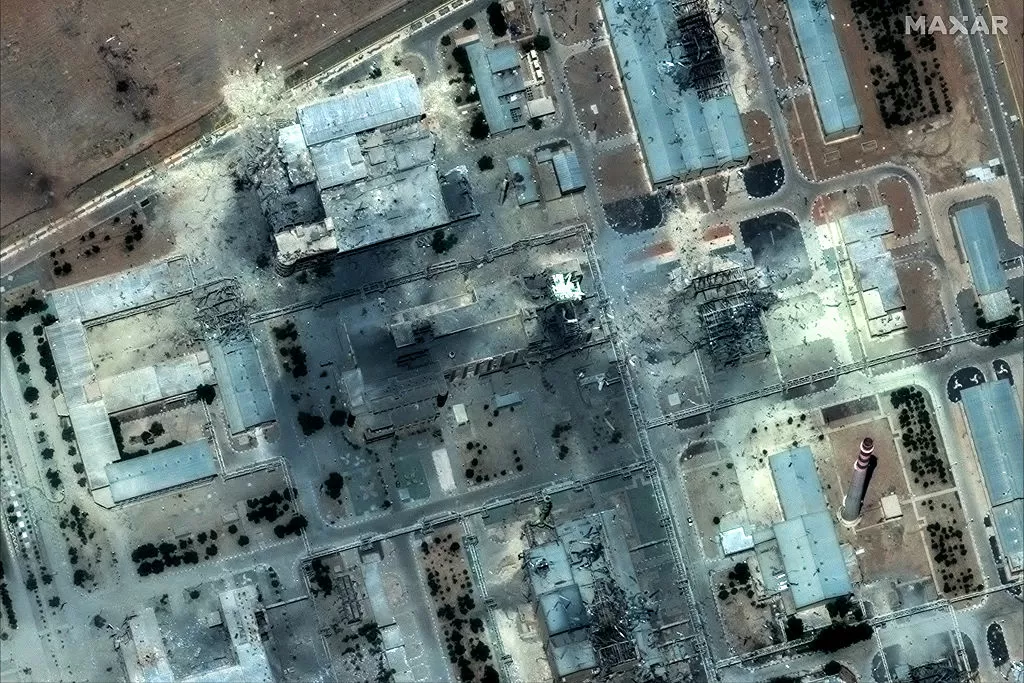In recent months, President Donald Trump has repeatedly claimed that he has effectively destroyed Iran’s nuclear program. However, analysts are now saying that instead of halting Iran’s nuclear ambitions, U.S. and Israeli attacks may have actually pushed the country closer to building a weapon.
The tensions between the United States and Iran have been escalating since Trump withdrew from the 2015 Iran nuclear deal, also known as the Joint Comprehensive Plan of Action (JCPOA). The deal, which was signed by Iran, the U.S., China, France, Germany, Russia, and the United Kingdom, aimed to limit Iran’s nuclear program in exchange for lifting economic sanctions. However, in May 2018, Trump announced that the U.S. would be withdrawing from the deal, citing concerns over Iran’s ballistic missile program and its support for terrorist organizations.
Since then, Trump has implemented a “maximum pressure” campaign against Iran, which includes imposing harsh economic sanctions and carrying out military strikes. In January 2020, Trump ordered a drone strike that killed Iranian General Qasem Soleimani, a move that further escalated tensions between the two countries.
While Trump has touted these actions as successful in curbing Iran’s nuclear program, experts believe that they may have had the opposite effect. In a recent report, the International Atomic Energy Agency (IAEA) stated that Iran has been increasing its stockpile of enriched uranium, a key component in developing nuclear weapons. The IAEA also noted that Iran has been enriching uranium to higher levels than allowed under the JCPOA.
Furthermore, analysts believe that the U.S. and Israeli attacks on Iranian nuclear facilities have only pushed Iran to further develop its nuclear capabilities. In June 2020, a mysterious explosion at Iran’s Natanz nuclear facility caused significant damage, with some speculating that it was a result of a cyberattack by the U.S. or Israel. In response, Iran announced that it would be increasing its uranium enrichment to 20%, a level that is much closer to weapons-grade.
These developments have raised concerns among the international community, with many experts warning that Iran may be closer to building a nuclear weapon than ever before. In a recent report, the Institute for Science and International Security stated that “Iran’s nuclear program has steadily expanded” since the U.S. withdrawal from the JCPOA.
The U.S. and Israel’s aggressive actions towards Iran have also had a negative impact on the already fragile relationship between Iran and the international community. The IAEA has expressed concerns over Iran’s lack of cooperation with its inspections, which is required under the JCPOA. In addition, the U.S. withdrawal from the deal has made it difficult for other countries to engage in trade with Iran, further isolating the country and limiting its options for economic growth.
Despite these setbacks, there is still hope for a diplomatic solution to the Iran nuclear issue. President-elect Joe Biden has expressed his intention to rejoin the JCPOA and engage in negotiations with Iran. This could potentially lead to the lifting of economic sanctions, which would provide much-needed relief for the Iranian people and create a more positive atmosphere for future negotiations.
In conclusion, while Trump may claim that his actions have destroyed Iran’s nuclear program, the reality is that they may have only pushed the country closer to developing a nuclear weapon. The U.S. and Israel’s aggressive tactics have not only failed to halt Iran’s nuclear ambitions but have also damaged the relationship between Iran and the international community. It is now up to the incoming administration to find a diplomatic solution and prevent further escalation of tensions in the region. Only through cooperation and dialogue can we hope to achieve a lasting resolution to the Iran nuclear issue.


